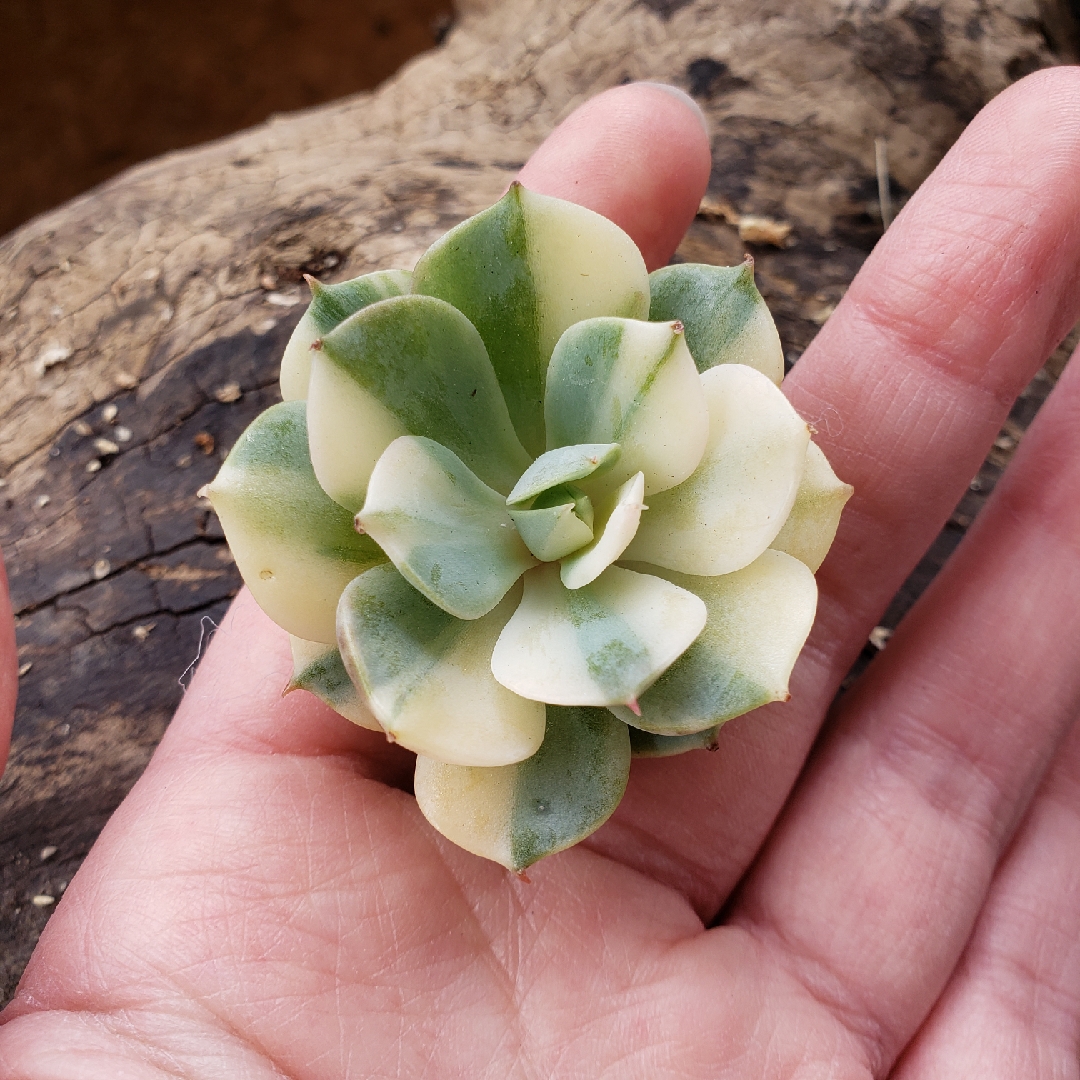
Echeveria Peacockii Bluete Variegata
Echeveria Peacockii 'Bluete'
Echeveria are very popular succulents that grow in attractive rosettes with beautiful leaves in a variety of colors and sometimes stunning flowers. These plants have been extensively hybridized, so in addition to the main species, there are many varieties that have been specially bred for interesting leaf form and color. Most of the common Echeveria species are not complicated succulents to grow, provided you follow a few basic rules. First, be careful never to let water sit in the rosette as it can cause rot or fungal diseases that will kill the plant. Additionally, remove dead leaves from the bottom of the plant as it grows. These dead leaves provide a haven for pests, and Echeveria succulents are susceptible to mealy bugs. As with all succulents, careful watering habits and plenty of light will help ensure success.
Contributed by @ionasan
-
Full sun
-
Occasional watering
-
A little frost hardy: 32F (0°C)
-
Light and free draining
Common name
Echeveria Peacockii 'Bluete'
Latin name
Echeveria Peacockii Bluete Variegata
type
Succulent
family
Crassulaceae
ph
5.5 - 7.0 Acid - Neutral
Plant & bloom calendar
-
Best time to plant
full grown dimensions
 0.25 M
0.10 M
0.25 M
0.10 M
Echeveria Peacockii Bluete Variegata
Echeveria are very popular succulents that grow in attractive rosettes with beautiful leaves in a variety of colors and sometimes stunning flowers. These plants have been extensively hybridized, so in addition to the main species, there are many varieties that have been specially bred for interesting leaf form and color. Most of the common Echeveria species are not complicated succulents to grow, provided you follow a few basic rules. First, be careful never to let water sit in the rosette as it can cause rot or fungal diseases that will kill the plant. Additionally, remove dead leaves from the bottom of the plant as it grows. These dead leaves provide a haven for pests, and Echeveria succulents are susceptible to mealy bugs. As with all succulents, careful watering habits and plenty of light will help ensure success.
Repotting
From Mid Spring TO Early Autumn
Repot as needed, preferably during the warm season. To repot a succulent, make sure the soil is dry before repotting, then gently remove the pot. Knock away the old soil from the roots, making sure to remove any rotted or dead roots in the process. Treat any cuts with a fungicide.








